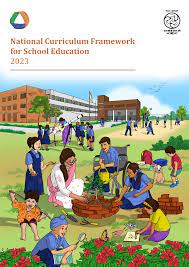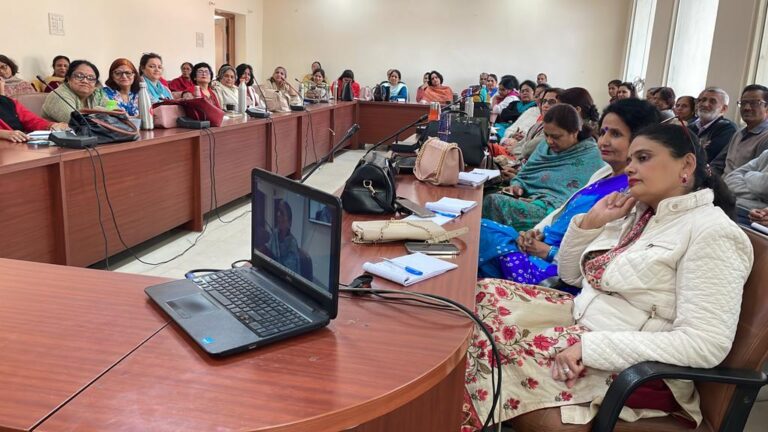
National Curriculum Framework (NCF)
National Curriculum Framework (NCF) is the guiding document for school education in India. NCF 2023 is the fifth National Curriculum framework followed by NCF 1975, NCF 1988, NCF 2000 and NCF 2005. All these documents are prepared by NCERT. NCF guide the syllabus, activities, teaching pedagogies, examination and many other aspects of school education. All NCF documents are based on various educational policies and educational reports. NCF is a very important component of school education in India by which a uniformity in school education is being achieved instead of different governments, different organisations are running school education in different parts of INDIA.
National Curriculum Framework (NCF) 2023
NCF 2023 has been prepared on the vision of National Education Policy 2020 named NEP 2020 as well. It addresses the age group of 3-18 years. NEP 2020 envisioned the four stage education structure i.e. 5+3+3+4. NCF 2023 is a document of 628 pages consisting five major parts namely APPROACH, SCHOOL SUBJECTS/AREAS, CROSS-CUTTING THEMES, SCHOOL CULTURE AND PROCESSES and CREATING A SUPPORTIVE ECOSYSTEM.
NEP 2020 vision covered in NCF 2023
Educational vision given in NEP 2020 is the basis of NCF-2023.
- Introduction to education for the children below the age of 6 years. NCF-2023 introduces curriculum of Early Childhood Care and Education.
- NCF 2023 covers the aims of Education introduced in NEP 2020.
- provides guidelines for implementing 5+3+3+4 structure of school education.
- Integration of streams and concept of no separate field in secondary education
- Integration Vocational Education
- Confront and address the real challenges faced across the states like rote memorization, narrow goals, inadequate resources and literacy and numeracy.
Objective of NCF 2023
“The overarching objective of this NCF is to help in positively transforming the school education
system of India as envisioned in NEP 2020, through corresponding positive changes in the curriculum
including pedagogy.
In particular, the NCF aims to help change practices in education and not just ideas; indeed, since
the word ‘curriculum’ encapsulates the overall experiences that a student has in school, ‘practices’
do not just refer to curricular content and pedagogy, but also include school environment and
culture. It is this holistic overall transformation of the curriculum that will enable us to positively
transform overall learning experiences for students” (NCF-2023, pg-12).
Characteristics of NCF-2023
- “Goal directed: The entire approach is driven by the curricular goals which are derived from
- the aims; these tie everything together and are center stage.
- Practice enabling: It attempts to convert and distill mattes to practice which is where
- education happens or doesn’t.
- Educationally valid: It’s based on sound research, experience, and accumulated knowledge
- in India and across the world.
- Engaging: Education must be made interesting and exciting both to the children and
- teachers.
- Improvement driving: Must be able to change things on-the-ground within practical
- constraints and limitations and keep moving forward.
- Diversity embracing: India’s diversity in all its forms must not only be addressed but
- should also become a resource for learning.
- Mutually reinforcing elements: All dimensions mentioned above are mutually reinforcing;
- as are the curricular goals, content, pedagogy, school culture and practices, assessment and
- evaluation” (NCF-2023, pg-15).
I will discuss all five facets of NCF-2023 in next post.
Rajni is an accomplished education professional who holds a PhD in Education and MPhil and MA degrees in Economics. She has extensive experience in research, having published over 16 research articles in peer-reviewed journals and contributed to articles in an edited book. Additionally, Rajni has authored a book in the field of education.
Rajni is passionate about making a difference in the field of education. She is an aspirant who is eager to do something innovative and valuable and is constantly striving towards creating a positive impact. She believes that education is a powerful tool which can change lives and that every student deserves access to quality education.
Rajni has a strong work ethic and a deep commitment to her profession. She is driven by her passion to learn, explore and contribute to the growth of the education sector. Her knowledge and experience in Economics and Education, combined with her intellectual curiosity and research skills, place her in a unique position to push the boundaries and creatively tackle complex challenges in the education field.
Overall, Rajni is an accomplished and driven professional who is poised to continue making a meaningful contribution in the field of education.

